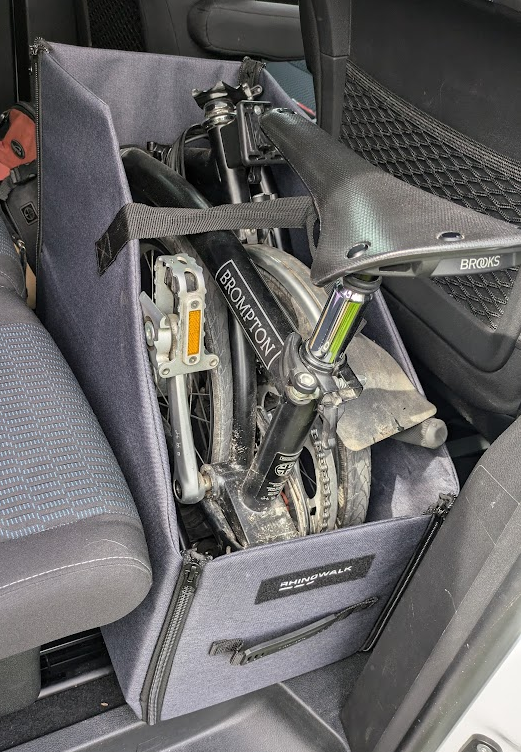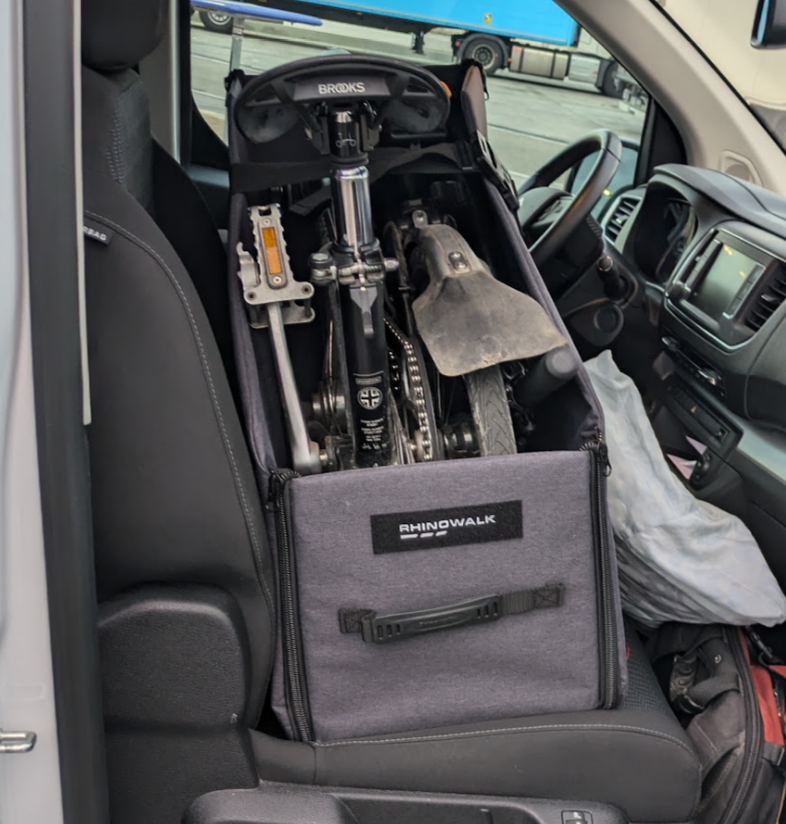Renting an electric Van
My holidays in recent years have been bikepacking holidays with hotels. Either with a longer route staying one day at a hotel or one location and cycling around there.
This summer I waited a lot at train stations. Deutsche Bahn obviously needs to improve and they plan on fixing their network over the next years. So I wanted to experiment with a solution I normally detest: using a car. I looked around what is available and rented a Citroen e-Spacetourer.
Some experiences from my week using an electic van
Driving electric is clearly the future and feels better than driving a combustion based car. I don't have a lot of electric cars used in the past, but compared to them the e-Spacetourer feels heavy and starts slowly.
The van had a camping setup, so there is not that much space for other luggage. Of course I wanted to transport my folding bike but it didn't fit in the rest of the space in the trunk. So I had to store it behind the front seats while driving and on the passenger seat while sleeping:


I didn't sleep that well in the van. Of course, it would have helped to go to bed early and not after midnight, but being woken up by the sun shortened the night considerably. Converting the van from drive mode to sleep mode doesn't take that long, but can be annoying in the middle of the night. One of the other things that annoyed me the whole week is the entrance height of the van. I couldn't get used to the two steps to get down from the drivers seat when leaving the car.
The whole trip is of course more expensive than using the Deutschlandticket and hotels. Renting the van costed more than a week of (cheap) hotels. And even compared to (pre booked) fast train tickets, charging the car was more expensive. For the nerd in me the whole trip was an experiment, so I tested different chargers from different companies without optimizing for the price. The pricing is quite different: between 0.49 €/kwh and 0.89 €/kwh (EnBW!). I only used adhoc charging and the app for Ionity. Because I only charged the week I had the van, I didn't subscribe to any better optimized tariffs. In hindsight, for Ionity a subscription would have saved me money.
For the 1905 km I paid 275€ overall. The overall is not absolutely correct, because the car was not full when I returned it. The final charging before returning was about 80 km before I returned the car. The 1905km and 275€ results in about 14€/100 km -- quite expensive. In detail I spent for each charging (always stopped below 85%): 20.72€, 10.05€ (EnBW), 15.06€, 18.24€, 33.05€, 29.99€, 25.53€ (Ionity), 18.31€, 20.99€ (Stadtwerke Stuttgart), 19.66€ (Stadtwerke Lindau), 24.51€, 9.62€ (E.ON), 29.69€ (Aral Pulse).
Charging Stations near the highways (at Rastplätzen) was not only with faster chargers, but a lot easier to use, because the charging spaces are not as small as the ones in the cities. The 5 meter long van should fit into all parking spaces, but it felt too risky to squeeze into the small charging parking lots in the cities. Finding a parking space in general is another annoying point why I don't miss owning a car. The best charging stations I used were from Aral Pulse, because it is drive through and wide enough for the van. The best app and user experience had Ionity -- so I used them the most (and even returned to some chargers days later).
Conclusion
Is the freedom to move around worth more money and sitting on the drivers seat? In a train I would have listened to podcasts the same as I did in the car. But driving a car is more tiring than sitting in a train. And for me driving doesn't spark joy.
So as a result: for me this wasn't worth it. But I can totally see why others like it. The experience on the other hand helped me to judge that I don't like it enough to buy a car in the near future. Maybe I will try this again with a bigger van (no conversion of the car for sleeping; enough space for my bicycle). But this kind of van is not electric yet.